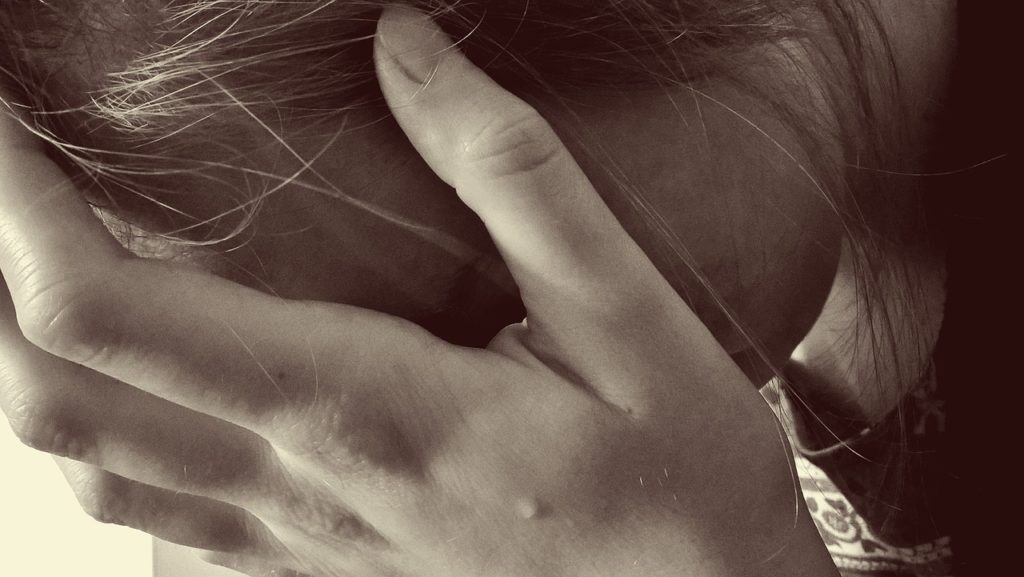This week, a “perfect couple,” whose 25-year marriage was the “envy of friends and relatives,” ended in a murder-suicide. If that was a rare thing, it would be shocking but still — rare. Except, it isn’t all that rare. According to the Centers for Disease Control and Prevention, more than half of the women murdered between 2003 and 2014, where the circumstances were known, involved domestic violence — the overwhelming majority killed by their current or former romantic partner. While this couple was older, domestic violence overwhelmingly involves young women; women between the ages of 18 to 24 are most commonly abused by a romantic partner, but murder-suicides are on the rise for older people.
Sobering statistics. 
This past weekend across the country there were staged readings of Lauren Gunderson’s work-in-progress, a one-woman play, Natural Shocks. Prompted by the Parkland school shooting and timed for the 19th anniversary of the Columbine school shooting, she wrote it to address a part of America’s gun violence crisis that often doesn’t get discussed — many mass shooters have a history of IPV.
While mass shootings are shocking, it’s the events like the murder-suicide of the “perfect couple” that is of much greater concern — to me, anyway — because they occur daily and impact many more people. And they often occur when a woman wants to end the relationship or marriage, as is presumed in this case. Because many more women want out of a marriage than men, well, add a gun into that mix and it increases the risk of homicide by 500 percent, according to NCADV.
What does that say about love — or what we consider love to be?
Jealousy’s role in domestic violence
Jealousy seems to be an accepted part of love — it’s sometimes even seen as a positive. But in little doses only, biological anthropologist Helen Fisher says; anything more and you might have a situation on your hands.
Still, love — our desire for it, our often painful ways of seeking it — sometimes lead some of us to unhealthy actions to preserve it, and that includes staying with partners who have a little too much jealousy to be safe for us.
Laura Kipnis takes that on so beautifully in Against Love: A Polemic (a book that has made me think, think, think):
The fear and pain of losing love is so crushing that most of us will do anything to prevent it, especially when it’s not our choice. And since forestalling trauma is what egos are designed to do, with anxiety as an advance warning system (
unfortunately a largely ineffective one), this will mean that falling in love also commits us to anxiety — typically externalized in charming behaviors like jealousy, insecurity, control issues (the list goes on) — or, in some cases, to externalized violence — the response of a system in emotional overload. The ego experiencing intimations of impending loss — real or imagined — is not a pretty sight.
I think we all have experienced that to various levels. More and more, I’m convinced that the poly concept of compersion — the joy you feel when you see your loved one experiencing pleasure, sexual or not, with someone other than you — makes sense. We are often afraid to address our own jealousies, something we explore in The New I Do: Reshaping Marriage for Skeptics, Realists and Rebels.
Leaving can be deadly
Not to say that all IPV stems from jealousy — frequent conflict, trust and validation all play a part, as does male identity and female empowerment — but leaving a relationship seems to be deadly for a huge number of women.
Looking back, I think I was lucky to extricate myself from a high school romance that could have turned ugly — or at least much uglier than it was slowly revealing itself to be. When I broke up with him, after he’d visited me in college and his increasing jealous made it clear I needed to end it, I was fearful for a long time. I was hundreds of miles from him but his house had guns; things could have happened.
Of course, domestic violence doesn’t happen to all of us, just some of us. Many of us love and are loved in beautiful, healthy ways, and our romantic relationships never become abusive (although they can be painful nonetheless). Love shouldn’t be something to fear; it’s just something to go into thoughtfully.
Want to be thoughtful about your romantic relationships? (Of course you do!) Then read The New I Do: Reshaping Marriage for Skeptics, Realists and Rebels (Seal Press). You can support your local indie bookstore or order it on Amazon.
















